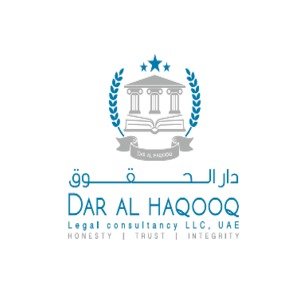Best Debt & Collection Lawyers in Sharjah
Share your needs with us, get contacted by law firms.
Free. Takes 2 min.
List of the best lawyers in Sharjah, United Arab Emirates
About Debt & Collection Law in Sharjah, United Arab Emirates
In Sharjah, United Arab Emirates (UAE), the laws related to debt collect, and loan repayment mainly fall under the UAE Federal Law no. (18) of 1993 regarding the Commercial Transactions Law. It facility information on bounced cheques, insolvent debtors, and loan repayment and has specific rules established to manage credit and debt related disputes.
Why You May Need a Lawyer
Managing debts or pursuing debtors in the UAE can be an intricate and arduous process. You might need a lawyer to help navigate through the complexities of the law, especially if you're a foreign resident unfamiliar with the local regulations. Typical situations requiring a lawyer include trying to recover a debt, handling a bounced cheque case, or if you've been declared insolvent and need help outlining a repayment plan to avoid imprisonment.
Local Laws Overview
Some fundamental principles of the debt and collection law in Sharjah include the enforcement of payments on delinquent accounts, dealing with debt collection companies or agencies, and provisions relating to bounced cheques. Under the law, if you are a debtor declared insolvent, you may face imprisonment unless you can establish a reasonable repayment plan. Creditors have the right to apply to the court to force repayment, while debt Collection Agencies are regulated to ensure fair practices.
Frequently Asked Questions
What happens if I can't repay my debt?
If you're unable to repay your debt, your creditor has the right to go to court and force payment. However, a debtor declared insolvent can avoid imprisonment by establishing a reasonable repayment plan acceptable to the creditor.
What happens if my cheque bounces?
Bouncing cheques is a serious criminal offence in the UAE. If a cheque is returned by a bank due to insufficient funds, the cheque holder may report it to the police, and the issuer may face both financial penalties and imprisonment.
Can debt collectors harass me?
Debt collection agencies are regulated under UAE law. The agencies are forbidden to harass, oppress, or abuse any person in the course of their collection practices.
Are there any restrictions on interest rates for debt?
Sharjah follows the federal laws of UAE, which do not cap interest rates. However, both parties must agree to the interest rate at the time of signing a loan contract.
What legal protection do I have against unfair debt collection practices?
UAE law offers protection against any unfair practices like exploitation, harassment, or threats. If you are a victim of any such conduct, you can file a complaint with the relevant government authorities.
Additional Resources
Authorities such as the Central Bank of the UAE, Sharjah Police, and Sharjah Courts provide resources related to debt and collection regulations. They facilitate information on how to deal with cases of insolvency, bounced cheques, and unfair practices by debt collection agencies.
Next Steps
If you need legal assistance in resolving issues related to debt and collection, start by reaching out to a qualified local lawyer specializing in UAE debt law. They can help understand your unique situation and propose the most effective course of action in compliance with local regulations. Also, familiarize yourself with the laws regarding debt and collection in Sharjah to know your rights and obligations.
Lawzana helps you find the best lawyers and law firms in Sharjah through a curated and pre-screened list of qualified legal professionals. Our platform offers rankings and detailed profiles of attorneys and law firms, allowing you to compare based on practice areas, including Debt & Collection, experience, and client feedback.
Each profile includes a description of the firm's areas of practice, client reviews, team members and partners, year of establishment, spoken languages, office locations, contact information, social media presence, and any published articles or resources. Most firms on our platform speak English and are experienced in both local and international legal matters.
Get a quote from top-rated law firms in Sharjah, United Arab Emirates — quickly, securely, and without unnecessary hassle.
Disclaimer:
The information provided on this page is for general informational purposes only and does not constitute legal advice. While we strive to ensure the accuracy and relevance of the content, legal information may change over time, and interpretations of the law can vary. You should always consult with a qualified legal professional for advice specific to your situation.
We disclaim all liability for actions taken or not taken based on the content of this page. If you believe any information is incorrect or outdated, please contact us, and we will review and update it where appropriate.













